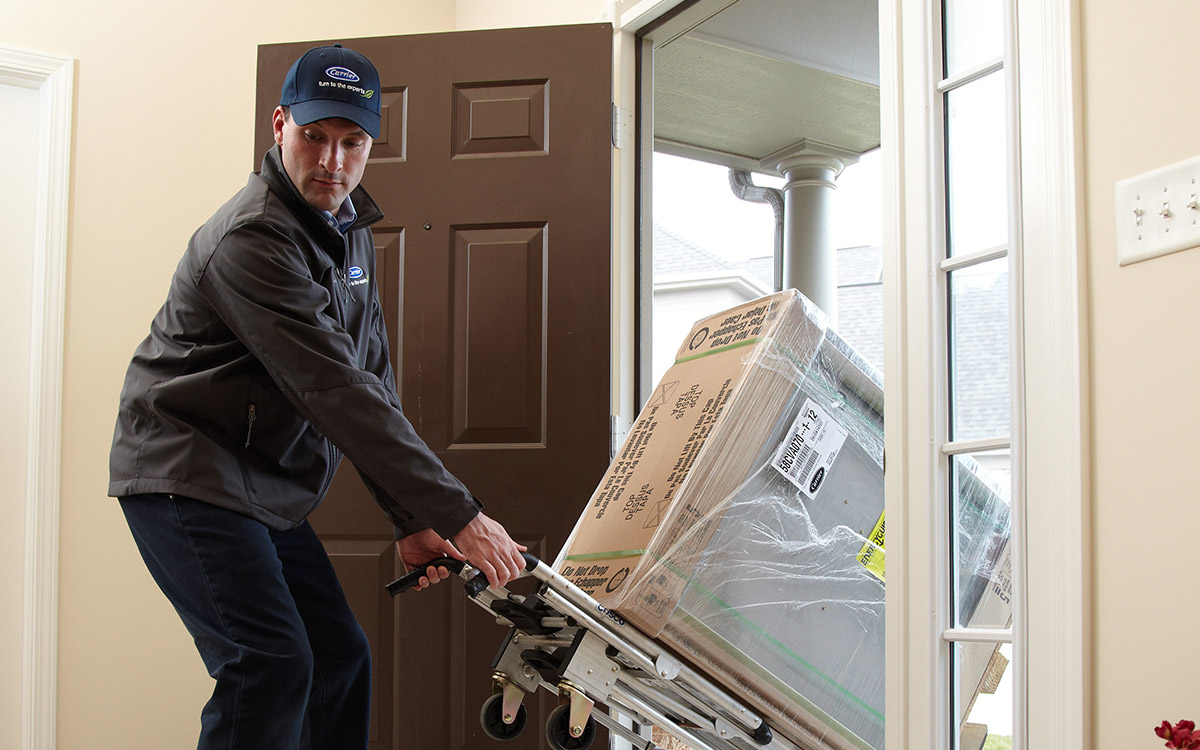
As a homeowner in Pittsburgh, your HVAC system plays a critical role in maintaining comfort, keeping you warm in the winter and cool during humid summers.
But when it starts acting up—whether through strange noises, weak airflow, or sudden shutdowns—it can be tough to know whether you need a repair, a full replacement, or just a minor adjustment.
This blog post will help you understand when HVAC repair and installation are really necessary, and when a minor issue with your unit is nothing to worry about. Knowing how to identify these issues can save you time, money, and unnecessary stress.
1. What are the telltale signs your HVAC system needs repair?
Several key indicators point to the need for HVAC repair and installation. If you hear unusual noises, such as banging, rattling, or squeaking, it could mean that certain parts have become loose, worn out, or need lubrication. Weak airflow is another sign of trouble. If one room feels warmer or cooler than another, the issue could be blocked ducts or a malfunctioning blower fan.
Also, short cycling, where the system constantly turns on and off, suggests it might be overheating or struggling to maintain the set temperature. An unexpected increase in your energy bill is another common indicator. When your HVAC system becomes less efficient, it consumes more energy to do the same job, resulting in higher utility costs.
Finally, strange smells—like musty odors or burnt electrical scents—can point to mold buildup or electrical problems that require immediate attention. Ignoring these signs can lead to larger, more expensive repairs down the road.
2. What are the situations where HVAC repairs aren’t always necessary
While it’s easy to assume that every issue with your HVAC system requires professional intervention, that isn’t always the case. In some situations, the problem can be solved with a quick adjustment or minor maintenance. For example, a clogged air filter can restrict airflow and mimic more serious problems, but it only takes a few minutes to replace the filter and restore the system’s efficiency.
Similarly, thermostat settings can sometimes confuse—if the thermostat is set incorrectly, your system might seem faulty when it’s not. Resetting the thermostat to the correct mode and temperature can often solve the issue without needing repairs. Another common scenario is a tripped circuit breaker. Power surges can cause your HVAC to shut down temporarily, but in most cases, resetting the breaker is all that’s needed. Seasonal maintenance also plays a role here.
During regular tune-ups, technicians often catch small issues like refrigerant leaks or loose wiring that can be addressed before they become bigger problems. These minor issues, when handled promptly, can prevent the need for unnecessary repairs.
3. When should you consider replacing your HVAC system?
Even with regular maintenance, there comes a point when repairs are no longer the best option. If your HVAC system is over 10 to 15 years old, it may be time to consider a replacement. As systems age, they become less efficient, which drives up energy costs. In some cases, frequent repairs become a burden, and when repair costs start to exceed 50% of the system’s value, it’s more cost-effective to install a new one.
Another reason to upgrade is the growing gap between older systems and modern energy standards. Newer HVAC models are designed to meet higher efficiency levels, helping you save on utility bills while reducing your carbon footprint.
Also, if you’ve recently expanded your home by adding new rooms or upgrading your living space, your current HVAC system may not be able to handle the increased demand. In these cases, replacing the system with one that suits the size of your home ensures optimal comfort. While a full system replacement may seem like a significant investment, it often pays off in the long run through better performance, fewer repairs, and lower energy costs.
4. Why should you call in a professional for HVAC repair and installation?
While it may be tempting to attempt DIY repairs, there are many reasons to leave HVAC work to professionals. HVAC systems involve complex electrical and mechanical components that require specialized tools and expertise. For example, handling refrigerant leaks or repairing a faulty compressor is not only challenging but also dangerous if done improperly.
There are also safety concerns to consider—electrical components and gas lines pose risks that only trained technicians can manage safely. Another important reason to hire a professional is to protect your warranties and insurance coverage. Many manufacturers’ warranties become void if unlicensed individuals attempt repairs, and homeowners’ insurance may not cover damages caused by improper repairs. Professionals also have the tools to optimize your system’s efficiency through detailed testing, which can help reduce your energy consumption and save money over time.
Also, HVAC repair and installation must comply with local building codes, and Pittsburgh may have specific regulations that only certified technicians are familiar with. Working with professionals ensures that your system meets all requirements and avoids any potential legal or safety issues.
5. What is the value of routine maintenance to avoid emergencies?
Routine maintenance is one of the most effective ways to avoid expensive repairs and emergency breakdowns. Scheduling seasonal tune-ups ensures that your HVAC system is prepared for Pittsburgh’s weather extremes, whether it’s the bitter cold of winter or the sweltering heat of summer.
During these maintenance visits, technicians inspect and clean your system, catching minor issues like loose belts or clogged coils before they can turn into major problems. Proactive maintenance not only prevents breakdowns but also extends the lifespan of your equipment.
Well-maintained systems tend to last longer, which delays the need for a costly replacement. Regular maintenance also keeps your HVAC system running efficiently, helping you save on energy bills. By investing in routine care, you ensure that your system stays in top shape and can handle Pittsburgh’s seasonal demands without unexpected failures.
Frequently Asked Questions
Below are some commonly asked questions to consider:
1. Does running my HVAC system non-stop increase wear and tear?
Yes, constant operation can strain the system, leading to premature wear of parts like the blower motor or compressor. It’s a good idea to use programmable thermostats to give the system breaks and optimize energy use throughout the day.
2. How can I tell if my HVAC is sized correctly for my home?
If your HVAC system struggles to maintain a consistent temperature or cycles on and off too frequently, it might be too small or too large for your home. An HVAC professional can perform a load calculation to determine the right size for your space.
3. What’s the difference between a repair and a tune-up?
A repair addresses a specific problem or malfunction, while a tune-up is preventive maintenance. During a tune-up, technicians inspect, clean, and adjust components to keep the system running smoothly and prevent future issues.
Call a professional for HVAC repair and installation today
Knowing when you need HVAC repair and installation is essential for maintaining comfort in your Pittsburgh home. While some issues, such as strange noises or uneven airflow, require professional attention, others—like clogged filters or thermostat adjustments—can be easily resolved without a technician. When your system is old or frequently breaking down, it may be time to consider a replacement to improve efficiency and lower long-term costs. Calling in a professional for major repairs ensures safety, protects warranties, and guarantees compliance with local regulations.
Get in touch with professional residential HVAC services today!


